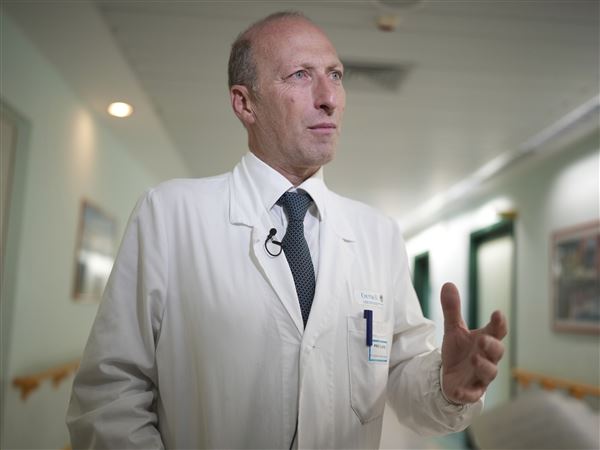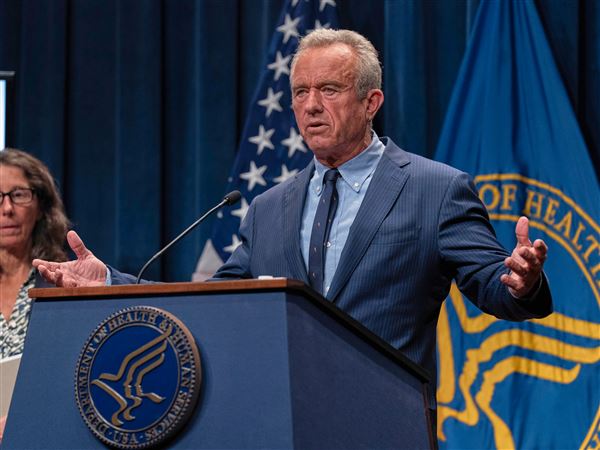Patty George, a lung transplant surgeon at UPMC, on Monday expects to begin the longest bicycle ride of her life — 764 miles from Paris to Brest on the Atlantic Coast in the Brittany section of France, then back to Paris — to raise awareness of, and funds for, pulmonary hypertension, a rare but very serious disease for which there is no cure.
Dr. George, 41, will be riding on behalf of Team PHenomenal Hope, which she co-founded with a UPMC colleague in 2011. She hopes to raise about $2,500 to help find a cure for pulmonary hypertension, a disease that affects the arteries that carry blood from the heart to the lungs.
The Paris-Brest-Paris randonneur is the oldest cycling event still run on a regular basis on the open road. Held every four years, it draws 5,000 participants from around the globe. There are three staggered starts, depending on participants’ abilities. The fastest riders get 80 hours, the intermediate group 84 hours, and the slowest group 90 hours.
Dr. George hopes to complete the route in 84 hours or less. “We start at 5:15 a.m.,” she said about Monday’s start. “I’ll probably ride until past midnight — 18 hours on the bike, another two at checkpoints, sleep for three hours, then get back on the bike.”
She plans to sleep on the floor at checkpoints.
“They recommend bringing a survival blanket, but there is supposed to be a heat wave in Europe, so I don’t know if even that will be necessary,” she said. “I do have a knack for sleeping just about anywhere.”
Dr. George will be eating mostly on her bike. “I’ve found a mixture of Generation UCAN [an energy drink] and Beetboost [a mixture of beet juice and tart cherry extract] helpful.” At the checkpoints she’ll supplement it with dried fruit, nuts and almond butter.
“They say mashed potatoes are good, too,” she said.
Team PHenomenal Hope was formed to be a “beacon” for the those suffering with pulmonary hypertension. The disease causes the pulmonary arteries, which are normally large and flexible, to tighten and stiffen. The right ventricle of the heart has to work harder to pump blood through the arteries to the lungs. It grows bigger, compressing the left ventricle, which makes it harder for that side of the heart to circulate blood through the rest of the body. As the strain increases, the heart weakens and can fail.
From 20,000 to 200,000 cases of pulmonary hypertension are diagnosed each year. Anyone can get it, but the greatest number of cases reported have been in women ages 21 to 40. Symptoms include shortness of breath, fatigue, dizziness, swelling of the ankles and legs and heart palpitations.
As part of Team PHenomenal Hope, Dr. George participated in the Ride Across America last year and the year before. But the Paris-Brest-Paris race will be twice as far as she has ever ridden. When the race is over, she’ll be tired and hungry, and her bottom will be very sore.
“Any discomfort I have will be transient,” she said. “People with pulmonary hypertension will have it for the rest of their lives. Anything I can do to help find a cure makes any discomfort I feel worthwhile.”
Jack Kelly: jkelly@post-gazette. com, 412-263-1476.
First Published: August 16, 2015, 4:00 a.m.
















